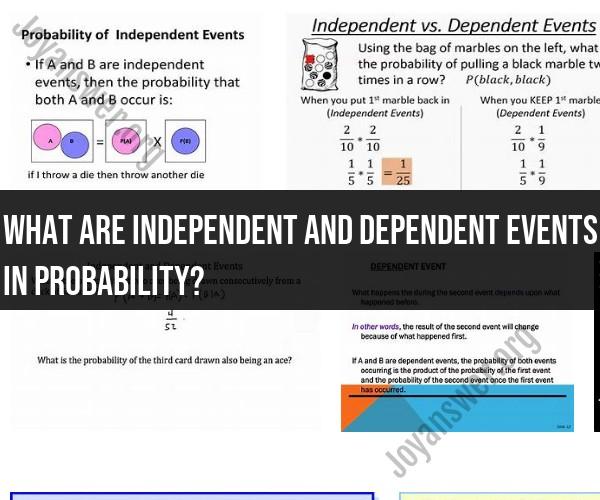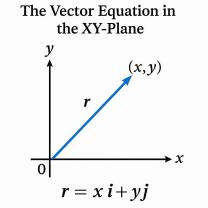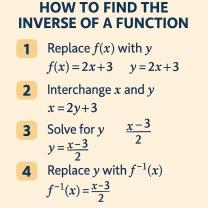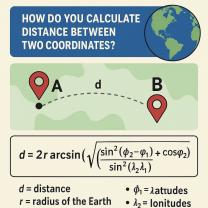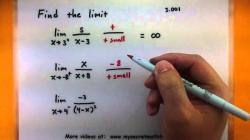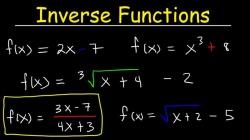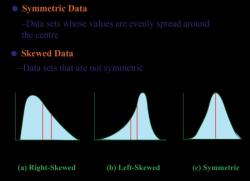What are independent and dependent events in probability?
In probability theory, events can be classified as either independent or dependent based on how the occurrence of one event affects the probability of another event happening. Here's a brief explanation of each:
Independent Events:
Independent events are events in which the occurrence (or non-occurrence) of one event does not affect the probability of the occurrence of another event. In other words, the outcome of one event has no influence on the outcome of the other. Mathematically, two events A and B are independent if and only if:
P(A ∩ B) = P(A) * P(B)
where P(A) is the probability of event A, P(B) is the probability of event B, and P(A ∩ B) is the probability of both events A and B occurring.
Examples of independent events include:
- Flipping a coin and rolling a die (the outcome of the coin toss doesn't affect the outcome of the die roll).
- Drawing two cards from a well-shuffled deck of cards with replacement (putting the card back in the deck after each draw).
Dependent Events:
Dependent events are events in which the occurrence (or non-occurrence) of one event does affect the probability of the occurrence of another event. In other words, the outcome of one event is dependent on the outcome of the other. Mathematically, two events A and B are dependent if and only if:
P(A ∩ B) ≠ P(A) * P(B)
In this case, knowing the outcome of one event provides information about the likelihood of the other event occurring.
Examples of dependent events include:
- Drawing two cards from a well-shuffled deck of cards without replacement (the probability of the second draw depends on the outcome of the first draw).
- Selecting marbles from a bag without replacement (again, the probability of the second selection depends on the outcome of the first).
Understanding whether events are independent or dependent is crucial when calculating probabilities, as it affects the way you compute the probabilities of combined events. In the case of independent events, you can simply multiply the individual probabilities, while with dependent events, you often need to consider conditional probabilities and adjust calculations accordingly.
Independent and Dependent Events in Probability: Key Distinctions
Independent and dependent events are two important concepts in probability. Independent events are events that do not affect each other. Dependent events are events that do affect each other.
For example, flipping a coin and rolling a die are independent events. The outcome of one event does not affect the outcome of the other event. However, drawing a card from a deck of cards and then drawing another card from the same deck is a dependent event. The outcome of the first draw affects the outcome of the second draw.
Event Relationships in Probability: Understanding Independence
Two events are independent if and only if the probability of one event happening is the same whether the other event has already happened or not. This can be written mathematically as follows:
P(A | B) = P(A)
where P(A | B) is the probability of event A happening given that event B has already happened, and P(A) is the probability of event A happening without regard to whether event B has happened.
The Odds of Dependency: Recognizing Dependent Events in Probability
Two events are dependent if they are not independent. This means that the probability of one event happening is not the same whether the other event has already happened or not.
There are many different ways that two events can be dependent. For example, two events can be dependent if they share a common cause, if they are part of a sequence of events, or if they are both affected by the same factor.
Here are some examples of dependent events:
- Drawing a card from a deck of cards and then drawing another card from the same deck.
- Flipping a coin twice and getting the same result both times.
- Rolling a die and getting a number that is greater than 5, then rolling the die again and getting a number that is less than 5.
Conclusion
Independent and dependent events are two important concepts in probability. Independent events are events that do not affect each other, while dependent events are events that do affect each other. It is important to be able to recognize whether two events are independent or dependent in order to solve probability problems accurately.
